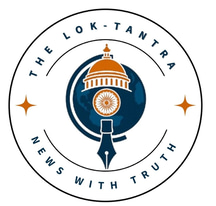Hezbollah Chief Hassan Nasrallah Killed in Israeli Strike in Lebanon
NEWS
9/29/2024
In a significant escalation of the ongoing conflict between Israel and Hezbollah, the militant group's leader, Hassan Nasrallah, was reportedly killed in an Israeli airstrike in southern Lebanon on September 28, 2024. This development marks a critical turning point in the region, raising concerns over potential repercussions for Lebanon, Israel, and the broader Middle East.
Background
Hassan Nasrallah, who has led Hezbollah since 1992, transformed the group from a militia into a powerful political and military force in Lebanon, positioning it as a key player in the regional axis of resistance against Israel and the United States. Under his leadership, Hezbollah has been involved in various conflicts, including the 2006 Lebanon War and the Syrian Civil War, where it supported the regime of Bashar al-Assad. Nasrallah's rhetoric often emphasized resistance against Israel, advocating for armed struggle and fostering a strong anti-Zionist sentiment among his followers.
The Airstrike
The Israeli Defense Forces (IDF) conducted the airstrike on a Hezbollah facility in the Tyre region of southern Lebanon, targeting what they described as a “command and control center” used by the group. According to Israeli military sources, the operation aimed to neutralize an imminent threat posed by Hezbollah's planned attacks against Israeli targets.
Witnesses reported hearing multiple explosions around midday on September 28, leading to extensive damage to the site and nearby structures. The IDF confirmed the strike but did not immediately comment on the death of Nasrallah, as Hezbollah has yet to officially confirm or deny the loss of their leader.
Reactions from Hezbollah and Iran
In the aftermath of the strike, Hezbollah issued a statement condemning the Israeli attack, vowing to retaliate against what it termed an "assassination." Sources close to the organization indicated that Nasrallah's death would only galvanize their resolve to confront Israel, with expectations of a heightened military response in the coming days.
Iran, Hezbollah's principal ally, expressed outrage at the killing, calling it a "barbaric act of aggression" that would not go unanswered. Iranian officials have historically supported Hezbollah both politically and militarily, viewing the group as an essential part of the so-called "Axis of Resistance" against Western influence in the region.
Regional and International Implications
The killing of Nasrallah has far-reaching implications for the already volatile situation in Lebanon and the wider Middle East. Analysts predict an escalation of hostilities between Israel and Hezbollah, potentially drawing in Iran and other allied groups in the region. The power vacuum created by Nasrallah's death may lead to internal strife within Hezbollah as factions vie for leadership, potentially weakening the organization in the long term.
Lebanon, already grappling with a severe economic crisis and internal political instability, faces the risk of further violence and unrest. The potential for retaliatory strikes against Israel could provoke a military response, leading to widespread conflict in the region.
Internationally, the killing has drawn attention from major powers, including the United States and Russia. The U.S. has reiterated its support for Israel's right to defend itself while calling for restraint to avoid a wider conflict. Conversely, Russia, which maintains close ties with Hezbollah and Iran, may seek to mediate to prevent an escalation
The death of Hassan Nasrallah in an Israeli airstrike represents a pivotal moment in Middle Eastern geopolitics, with implications that extend beyond the Israel-Hezbollah conflict. As the region braces for potential repercussions, the coming days will be critical in determining the course of action for Hezbollah and its allies, as well as the response from Israel. The international community will undoubtedly watch closely, as the situation unfolds, seeking to avert a broader conflict that could engulf the region once again.
